Well, it's double thanks to Paul today, 1 for hosting me and 2 for organising this blog tour (and thanks to Literary+ for making it possible).
The Sidekick - Plucky, Loyal and Just a Tad Annoying :).
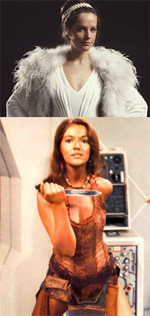
Ever since I was little, I've always been a fan of sidekicks. Maybe it's because I grew up watching Dr Who, a show in which the Doctor's companions are very important. I always missed them in the episodes when the Doctor was alone. I was exposed to my first kick-arse woman in Dr Who, Leela, the Sevateem warrior who liked her Janus thorns just a little too much. I also love Mary Tamm's Romana, but I only got to watch her in reruns, I was too young to watch the shows on the TV. The Doctor's companions used to have to put up with quite a lot and I liked it when they managed to get one up on him.

The Doctor and his companions is the classic power dynamic between hero and sidekick: the hero knows more, is generally better at stuff and is frequently explaining things to his/her younger companion and thus explaining things to the reader/viewer. However, because there were so many companions, Dr Who did get to crack the mould. The Doctor remained (mostly) in charge, but the likes of Sarah Jane Smith could make their mark and stepped out of the Doctor's shadow, especially so with Sarah Jane, who eventually had her own series.
I was being flippant with my title when I described the sidekick as annoying, it's not a universal truth, although I have to admit, some have turned out that way, or at the very least started that way. A character I loved as a child, Adric, again from Dr Who, annoys the hell out of me as an adult, I just want to smack him over the head for being willful, childish and arrogant. Richie Ryan from Highlander The Series, in the first episode I saw, I wanted to take a sword to his neck, but he grew on me, so much so, I preferred him to The Highlander himself. Richie is an example of a sidekick growing beyond the role in which he starts. There were five seasons of Highlander (well, okay there were six, but some of us don't talk about #6) and Richie grew from rebellious teenager, there to generally get in trouble so Duncan could moralise at him, to a mature, independent immortal who then began to lose his usefulness for the writers, because he was too like the other immortals in the show. Personally, I liked the adult Richie, he was a sidekick who came of age, someone who could stand up to McLeod, a more modern companion.
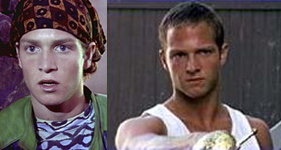
Richie was not the first sidekick to do this, we have the likes of Robin becoming Nighthawk in the Batman comics as well. And maybe in written media, comic serials and book series that run over a longer time-frame than TV, sidekick growth is easier to accommodate and you also don't have to worry about the actor getting older, either. I suppose my sidekick character in Death In The Family is Sean, he's younger than my protagonist, Tom, but they share common goals and Tom feels protective towards him. I certainly see him growing and changing over the sequels, after all, he is currently fourteen, a time of transition from child to adult. In fact, I intend his evolution to be as much part of the story dynamics as Tom's. I won't be using him as a stooge, nor as an example of how not to do things, the sidekick in modern literature is far more sophisticated than the 2D characters of old TV, e.g. Scrappy-Do from Scooby-Do, Vince Romano from TJ Hooker, Penfold from Dangermouse.
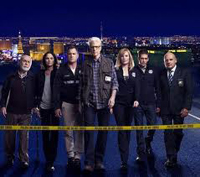
Unlike the aforementioned traditional sidekicks, who were generally stuck in their ways with a particularly annoying catch-phrase if you are really lucky, Sean does get to take the lead in some things, he knows more about their mutual condition than Tom does and at least in the beginning, he is the stronger character. Modern sidekicks are more than there for the 'but why Doctor's of old. In fact, a lot of stories are moving to the ensemble model where there is not such a distinction between leader and supporter. In TV, this can be seen in the likes of CSI, where there is always a lead figure, but the sidekicks, or rather, subordinates are no longer on the side, they have almost as big a role in proceedings as the head honcho. There are, of course, always the mentor-mentee moments, providing the classic one-on-one learning experiences, but there is not so much of the subordinate being there just to get it wrong so the hero can show them how it's done, because *gasp* in our modern world, even heroes are allowed to be fallible.
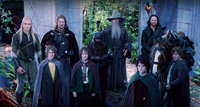
Ensemble structures are not something I've played with a lot in my writing, I suppose the classic is the fantasy quest adventure, the likes of J R R Tolkein's Lord of The Rings, where there are many characters each striving for the one goal. I tend to veer towards one or two characters when I'm writing, so this group dynamic is a challenge for me, making sure each character has enough 'air time' and this style of story lends itself to an omnipotent view point, also not a narrative mode I go for. Still, I do have a short story that I released for The Wittegen Press Giveaway Games, Samling Born, that will be developing into an ensemble format novel, so I better get practising.
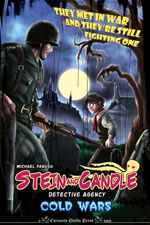
Despite the rise of ensemble shows on TV, I don't believe the hero-sidekick relationship will go away, especially not in written format. There is still something to say for the best-friends and/or master-student relationships that this dynamic creates. Much good literary material lies in 'wise sage give young apprentice advice' and, in modern relationships, the inverse is also true, teachers can learn from their pupils. I think, due to the flexibility of our format, a novel writer can develop a much more nuanced and intimate relationship between characters than a forty-five minutes a week TV show and the sidekick has his or her role to play in many stories. They are there to: help the reader learn about the environment the author is creating; maybe lighten the mood from time to time; keep the hero on the straight and narrow (there is a particularly good example of this in The Stein and Candle Detective Agency #2: Cold Wars where Weatherby makes his opinions known to Mort when Mort's actions become questionable).
I think the role of the sidekick can be summed up by saying that they, more often than not, provide the humanity a story needs. Your hero/protagonist can be a psychotic bastard, as many of the darker superheroes can be from time to time, if you have that small breath of loyal, earnest humanity in the form of the, yes I'll use the term, plucky sidekick.
Sophie Duncan
Sophie was born with the writing bug in her blood, boring her primary school teachers with pages of creative writing and killing her first typewriter from over use when she was thirteen. She began publishing her work on line while at university where she discovered the internet and fanfiction. It took another decade for Sophie to realise her long-time dream of releasing her own original fiction as an author through Wittegen Press.
Death In The Family (Heritage is Deadly #1)
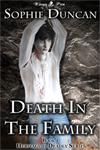
Leaving a good London school with solid prospects, Tom Franklin has the world at his feet. Yet one thing has always haunted his perfect life: his dreams. When Tom discovers that the nightmarish images of dark places and even darker instincts are in fact repressed memories from his early childhood, he must face the heritage from his birth-father, a savage vampire known only as Raxos.
Realising his memories are his only hope of controlling his awakening instincts, Tom returns to, Coombedown, the sleepy, Cornish village in which he was born, unknowing that the night-breed in his veins will lead him into danger.
Death In The Family is a young adult, paranormal novel.
Death In The Family Literary+ Blog Tour Schedule:
- 27th August 2012: Is it the teeth? - vampires and why we like them. Host: Brooke Johnson
- 28th August 2012: Scare me, Shock me - paranormal fiction vs horror. Host: A. K. Flynn
- 29th August 2012: For Mature Eyes Only - when does romance become erotica? Host: JD Savage
- 30th August 2012: There were 3 in the bed... ménage, ewww or gimme gimme! Host: Tressa Green
- 31st August 2012: The Sidekick - plucky, loyal and just a tad annoying :) Host: Paul Carroll
- 1st September 2012:Feedback - Taking It - Giving It - Enjoying It. Host: Leonard Suskin
- 2nd September 2012: Mad With It - The Highs and Lows of A Writing Imperative Allisyn Bridges

Literary+ is a marketing initiative which was founded and led by Shen Hart. This is a time of evolution and progress, the market is being opened up to e-books and self-publication. As a fellow writer, Shen understands that self-publication is a hard and often lonely road. She started Literary+ to bring together authors and related creative specialities with the goal of helping each other. With a tight knit, friendly and welcoming community at its core, Literary+ holds a strong focus on marketing. As Literary+ continues to grow and evolve it will use innovating, original and experimental marketing methods and schemes to get its member’s books into their reader’s hands.
No comments:
Post a Comment